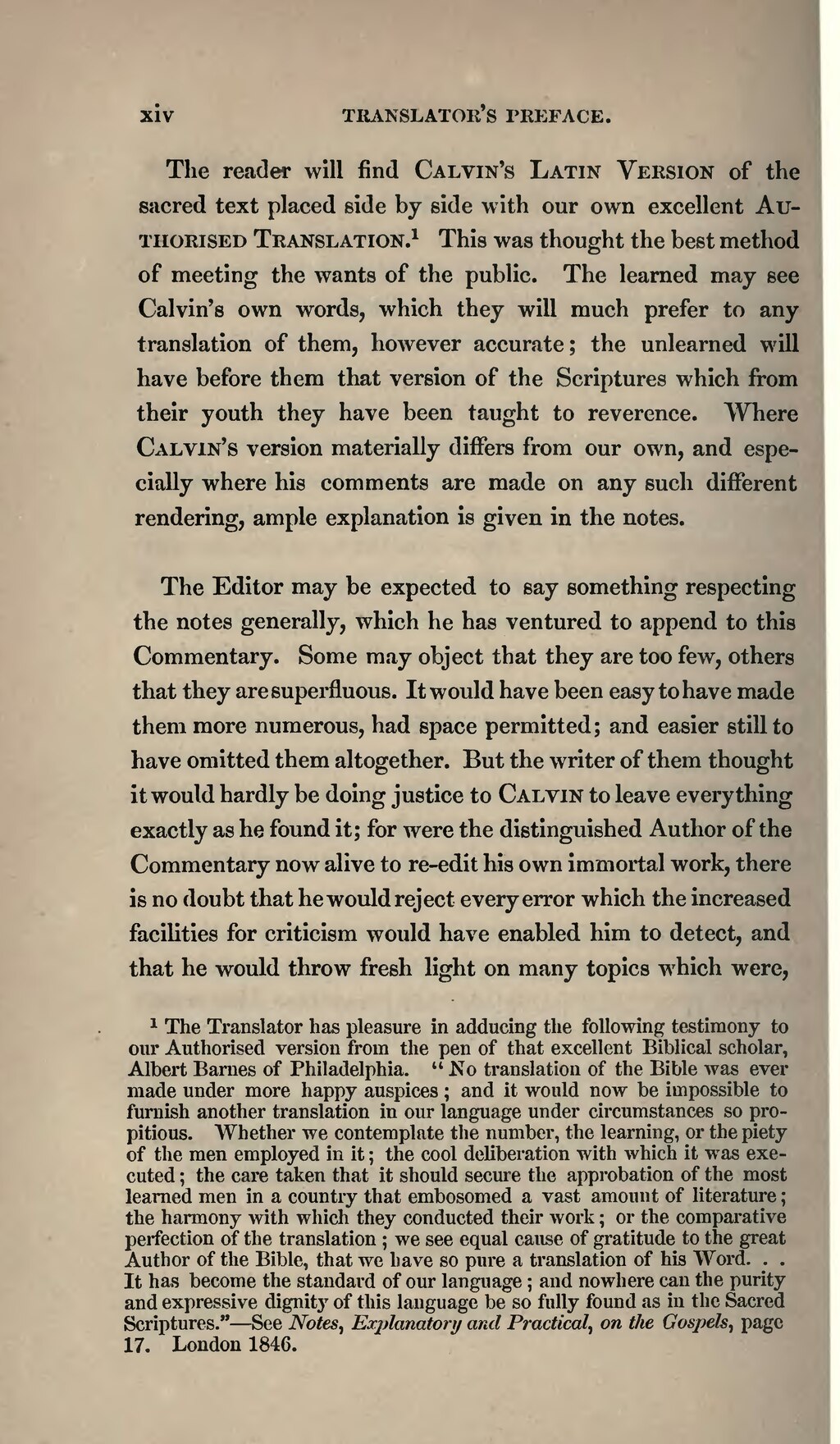The reader will find Calvin's Latin Version of the sacred text placed side by side with our own excellent Authorised Translation.[1] This was thought the best method of meeting the wants of the public. The learned may see Calvin's own words, which they will much prefer to any translation of them, however accurate; the unlearned will have before them that version of the Scriptures which from their youth they have been taught to reverence. Where Calvin's version materially differs from our own, and especially where his comments are made on any such different rendering, ample explanation is given in the notes.
The Editor may be expected to say something respecting the notes generally, which he has ventured to append to this Commentary. Some may object that they are too few, others that they are superfluous. It would have been easy to have made them more numerous, had space permitted; and easier still to have omitted them altogether. But the writer of them thought it would hardly be doing justice to Calvin to leave everything exactly as he found it; for were the distinguished Author of the Commentary now alive to re-edit his own immortal work, there is no doubt that he would reject every error which the increased facilities for criticism would have enabled him to detect, and that he would throw fresh light on many topics which were,
- ↑ The Translator has pleasure in adducing the following testimony to our Authorised version from the pen of that excellent Biblical scholar, Albert Barnes of Philadelphia. "No translation of the Bible was ever made under more happy auspices; and it would now be impossible to furnish another translation in our language under circumstances so propitious. Whether we contemplate the number, the learning, or the piety of the men employed in it; the cool deliberation with which it was executed; the care taken that it should secure the approbation of the most learned men in a country that embosomed a vast amount of literature; the harmony with which they conducted their work; or the comparative
perfection of the translation; we see equal cause of gratitude to the great Author of the Bible, that we have so pure a translation of his Word.
It has become the standard of our language; and nowhere can the purity and expressive dignity of this language be so fully found as in the Sacred Scriptures."—See Notes, Explanatory and Practical, on the Gospels, page 17. London 1846.
